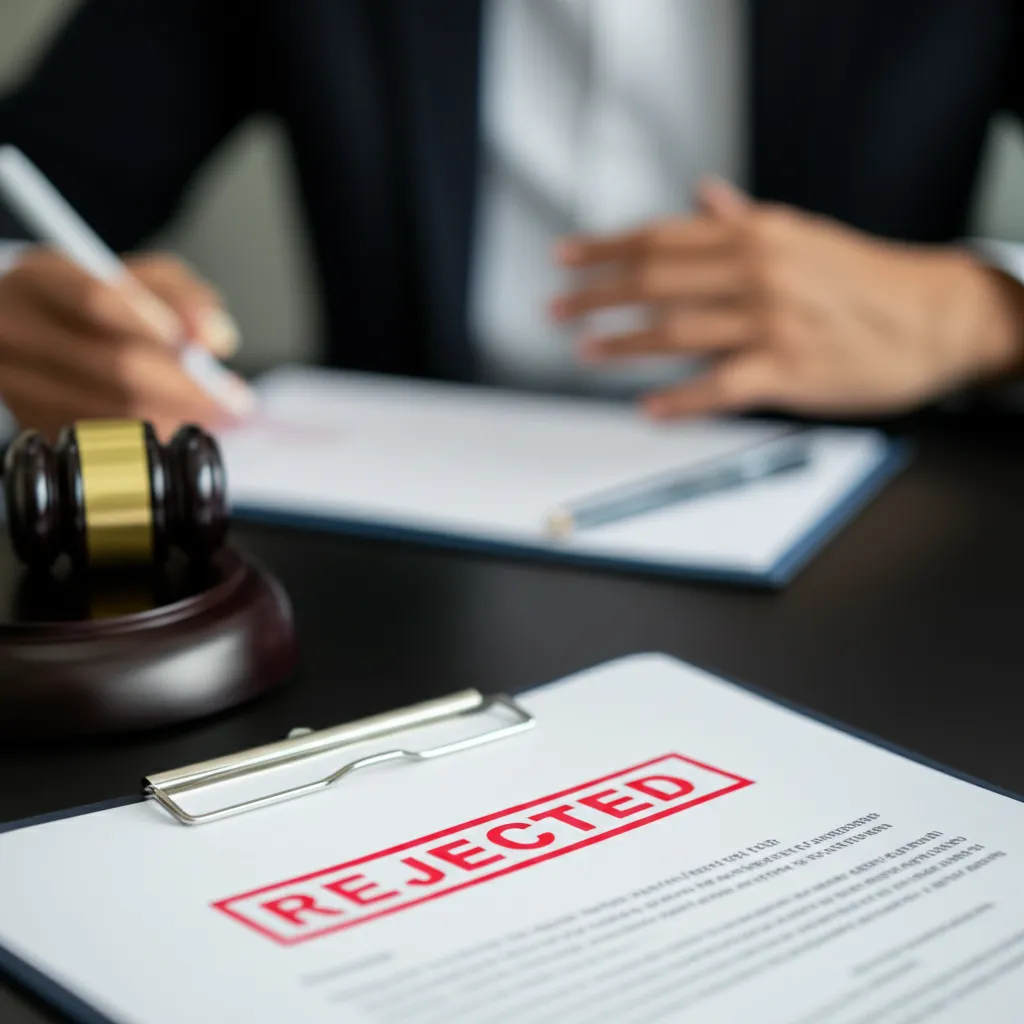Claim Rejected? What Accident Claims Lawyers Advise Next
- account_circle admin
- calendar_month Rab, 3 Sep 2025
- visibility 33
- comment 0 komentar

Claim Rejected? What Accident Claims Lawyers Advise Next
KlikBabel.com – Claim Rejected? What Accident Claims Lawyers Advise Next. The sinking feeling when your accident claim is rejected can be overwhelming. Whether it’s a car accident, a workplace injury, or a slip and fall, receiving that denial letter can feel like the end of the road. However, it’s crucial to understand that a rejected claim isn’t always the final word. Experienced accident claims lawyers offer a roadmap through this often-confusing process, providing expert guidance on how to navigate the appeal and potentially secure the compensation you deserve.

Claim Rejected? What Accident Claims Lawyers Advise Next
Why Do Accident Claims Get Rejected? Common Pitfalls
Before diving into the next steps, it’s essential to understand why your claim might have been denied in the first place. Insurance companies often reject claims for various reasons, including:
- Insufficient Evidence: This is perhaps the most common reason. If you haven’t gathered enough supporting documentation – police reports, witness statements, medical records, photos of the accident scene and injuries – the insurer may deem your claim unsubstantiated.
- Policy Exclusions or Limitations: Your insurance policy might have specific clauses that exclude certain types of incidents or have limits on what they will cover. Understanding your policy is paramount.
- Late Filing: Most insurance claims have strict deadlines for submission. Missing these deadlines can lead to an automatic rejection.
- Disputed Liability: If the insurance company believes you were partially or fully at fault for the accident, they may deny your claim, especially if their investigation points to your negligence.
- Incomplete or Inaccurate Information: Errors or omissions in your claim application can lead to delays and ultimately, a rejection.
- Pre-existing Conditions: Insurers may try to attribute your injuries to pre-existing conditions rather than the accident, especially if medical records are unclear.
- Failure to Mitigate Damages: If you didn’t seek prompt medical attention or follow doctor’s orders, the insurer might argue that you worsened your own condition, impacting their payout.
What Accident Claims Lawyers Advise Next: Your Action Plan
When faced with a rejected claim, panic is not a strategy. Instead, lawyers specializing in accident claims recommend a methodical approach:
- Review the Denial Letter Thoroughly: This is your first and most important step. The letter should clearly state the reasons for the rejection. Understand why they denied your claim. This will inform your subsequent actions. Don’t just skim it; dissect every sentence.
- Gather All Documentation: Revisit all the evidence you initially submitted. Organize it meticulously. This includes:
- The original claim submission.
- The denial letter.
- Police reports and accident scene photos.
- Medical records, doctor’s notes, and bills.
- Witness contact information and statements.
- Any communication you’ve had with the insurance company.
- Consult with an Experienced Accident Claims Lawyer: This is where professional expertise becomes invaluable. A seasoned lawyer will:
- Analyze the Denial: They can identify whether the denial is legitimate or if the insurance company is acting unfairly or misinterpreting policy terms or evidence.
- Identify Missing Evidence: They can determine if crucial evidence was overlooked or if additional documentation is needed to strengthen your case. This might involve obtaining expert reports (e.g., accident reconstructionists, medical experts) that were not initially part of your submission.
- Understand Policy Nuances: Lawyers are adept at interpreting complex insurance policies, identifying loopholes or clauses that might have been misinterpreted by the insurer.
- Communicate with the Insurer: They can handle all communication with the insurance company, speaking their language and presenting your case effectively.
- Initiate the Appeals Process: Most insurance policies have an internal appeals process. Lawyers know how to navigate this, ensuring all procedural requirements are met.
- Explore Legal Options: If internal appeals are exhausted or unsuccessful, they can advise on further legal action, such as filing a lawsuit.
- Consider a Re-evaluation or Appeal: Based on the lawyer’s assessment, the next step will likely involve either:
- Submitting Additional Information: If the denial was due to a lack of evidence, your lawyer can help you gather and submit the necessary supporting documents.
- Filing a Formal Appeal: This involves a written argument outlining why the denial was incorrect, often referencing policy terms and the evidence you’ve provided.
- Negotiate with the Insurance Company: Even after an appeal, the insurance company might still be resistant. Your lawyer can engage in negotiations, leveraging their experience and understanding of similar cases to reach a fair settlement.
- Prepare for Litigation (If Necessary): If negotiations fail and the insurance company remains unwilling to compensate you fairly, your lawyer will prepare to take your case to court. This is a more involved process, but often the only recourse for those who have been unfairly denied.
Key Takeaways for a Rejected Claim:
- Don’t give up: A rejection is not necessarily the end.
- Understand the reason: This is critical for your next steps.
- Seek professional help: An accident claims lawyer is your strongest ally.
- Be patient and persistent: The appeals process can take time.
Navigating a rejected accident claim can be daunting, but with the right legal guidance, you can increase your chances of a positive outcome. Expert advice ensures your rights are protected and that you receive the compensation you are rightfully owed.
Frequently Asked Questions (FAQ):
Q1: How long do I have to appeal an accident claim denial?
A1: The timeframe to appeal an accident claim denial varies significantly depending on the type of insurance, the specific policy, and the jurisdiction. However, most insurance policies have strict deadlines, often ranging from 30 days to 180 days from the date of the denial letter. It is crucial to review your denial letter immediately and consult with an accident claims lawyer as soon as possible to ensure you don’t miss the appeal window.
Q2: Can I negotiate with the insurance company myself after a denial, or do I need a lawyer?
A2: While you can attempt to negotiate with the insurance company yourself, it is highly recommended to have an accident claims lawyer involved. Insurance adjusters are trained to protect the insurer’s interests, and they may use tactics that a layperson is unaware of. A lawyer understands insurance laws, claim valuation, and negotiation strategies, giving you a significant advantage. They can present your case more effectively and identify opportunities for a fair settlement that you might miss on your own.
Q3: What if the insurance company claims I was partially at fault for the accident?
A3: If the insurance company claims you were partially at fault, it can complicate your claim, as many jurisdictions have comparative negligence laws. Under these laws, your compensation may be reduced by the percentage of fault assigned to you. An accident claims lawyer can help investigate the accident thoroughly to determine liability, gather evidence to challenge the insurance company’s assessment of fault, and negotiate a fair settlement based on the applicable negligence laws in your area. They can also advise you on whether pursuing litigation is the best course of action if an agreement cannot be reached.
- Penulis: admin












Saat ini belum ada komentar